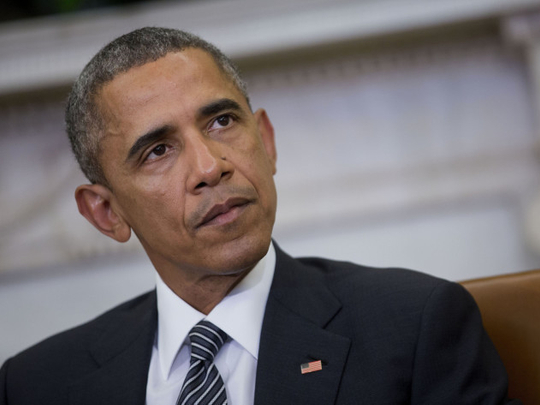
Years ago, when he was still a general, Colin Powell is reported to have said that nobody wants America to be the world’s policeman, but guess who everyone calls whenever they need a cop?
Readers in other parts of the world may take issue with that, but it remains a pretty good summary of how many Americans, particularly those who work in politics or national security, see their country and its role. It is not uncommon to hear Americans complain that their country is fighting for ill-defined reasons in remote places few of them can locate on maps. Yet, every time a new crisis explodes somewhere in the world, many of the same people demand to know what their political leaders plan to do about it.
Yemen offers the latest example of this policy dilemma. The argument that Yemen is important is reasonably easy to make: It occupies a hugely strategic location at the southern entrance to the Red Sea giving it control of one of the world’s most important shipping channels. It shares a long, and nearly impossible to seal, border with Saudi Arabia. That means that instability in Yemen could threaten the world’s most important oil producer and, by extension, the rest of the Gulf. At a more basic level there is a fear that if parts of Yemen become essentially ungoverned a new safe haven for terrorists could develop, much like Afghanistan in the years prior to September 2001.
Does that mean the US should send troops to help the Arab governments fighting Al Houthi rebels who have taken over large parts of the country? Most Americans would, for now, say “no”.
A few months ago, however, the same could have been said about US involvement in the fight against Daesh (self-proclaimed Islamic State of Iraq and the Levant) in northern Iraq and northeastern Syria. Today, however, a surprising number of Americans tell pollsters they favour “boots on the ground” if that is what it takes to get rid of the zealots.
Some of this is politics. For several generations Republicans have tended toward a more interventionist foreign policy than Democrats. Add to that Washington’s current reality of a Democratic president confronting a Republican Congress and it more-or-less guarantees that whatever US President Barack Obama proposes to do in any foreign policy crisis will not be enough in the eyes of many people on Capitol Hill.
Politics, however, obscures the question of what America actually ought to be doing. Americans are deeply invested in the idea that their country is “exceptional” — that with its great power comes an equal amount of responsibility. As a result, the idea that America has a role to play in every international crisis large and small is surprisingly widely accepted in the US.
Yet, it is one thing to accept this proposition in theory and another to carry it in practice. Superpowers surely have responsibilities, but do those responsibilities really require them to get involved everywhere?
The question is not so much whether the US should be helping its Arab allies as they take action against Al Houthis as whether anyone in Washington has thought America’s involvement in this conflict through any systematic way. For Washington, the real danger in Yemen is that it will get sucked into another open-ended conflict in the Middle East without ever having carefully considered how involved it ought to be. The US obviously has an interest in keeping the Bab Al Mandeb straits open, but its longstanding military presence in Djibouti and the Indian Ocean is probably sufficient to guarantee that. In Yemen itself it needs to balance a laudable desire to be helpful to long-time allies with the realisation that it and they may have very different timelines for this conflict.
Most importantly, it needs to understand that while no one wants to see Yemen collapse, the members of the Saudi Arabia-led coalition may (indeed, probably do) have vastly different ideas about what they would like Yemen to look like when all this is over.
Another thing Powell said back when he was still a general was that America should never get involved in foreign conflicts unless it had both a clear sense of its own goals and of its exit strategy. If the Obama administration has thought these things through, where Yemen is concerned it has not, so far, done a very good job of explaining it to the American public. That is not to say that US assistance to its Arab allies is a bad idea — only that no one in Washington has really made the case for it. It is a case Americans deserve to hear.
Gordon Robison, a longtime Middle East journalist and US political analyst, teaches Political Science at the University of Vermont.










